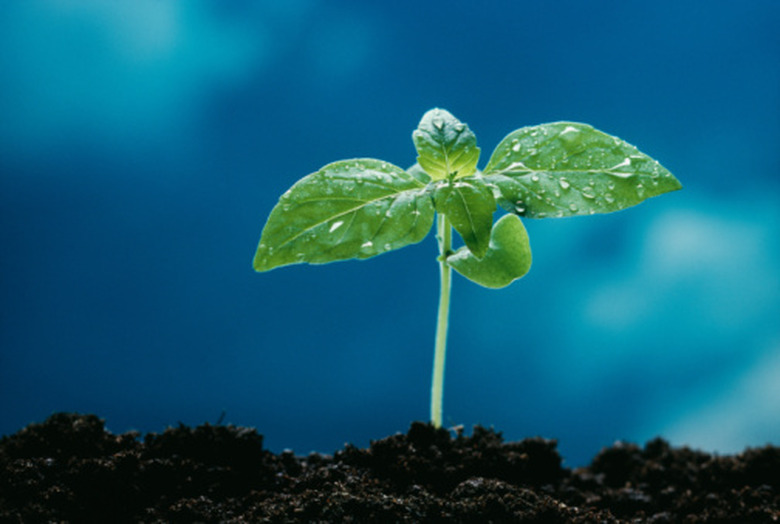Why Does Salt Affect The Germination Of Mung Bean Seeds?
Mung beans are highly nutritious legumes with up to 28 percent protein, as well as calcium, phosphorus and other vitamins. Mung beans are used in Asian and vegetarian cooking because of their high protein content. When growing mung beans at home, gardeners must consider the salt content in their soil, which can affect the germination of mung bean plants.
How Salt Affects Plants
A high concentration of salt in the soil can interfere with a plant's ability to take up and hold water in its roots. High amounts of sodium and chloride are toxic to plants as well. Saline soil can also reduce the amount of micronutrients that are available, and this leads to mineral deficiencies. Leaves can emerge smaller than normal, with yellowing or browning of edges and dead areas on the leaf edges.
- Mung beans are highly nutritious legumes with up to 28 percent protein, as well as calcium, phosphorus and other vitamins.
- When growing mung beans at home, gardeners must consider the salt content in their soil, which can affect the germination of mung bean plants.
Salt and Bean Plants
Bean plants are particularly susceptible to salinity in soil and in irrigation water. Germination in plants can be inhibited or even prevented by the presence of high concentrations of salt in the soil. If beans are doing poorly in your garden, consider the presence of high levels of salt in the soil. Soil salinity produces the greatest effects during dry periods. The only way to determine how much salt is in soil is through a soil test. These tests are available through your local university agricultural extension service. Extension agents can advise you on what you can do to reduce the salt content in your soil.
- Bean plants are particularly susceptible to salinity in soil and in irrigation water.
- Germination in plants can be inhibited or even prevented by the presence of high concentrations of salt in the soil.
Salt and Mung Beans
Mung beans are one of the more salt-tolerant varieties of beans. Nevertheless, the high salt content in soil can reduce germination rates and cause plants to grow poorly, according to authors Magda H. Mohamed and M.F. El Kramany in their article, "Salinity Tolerance of Some Mungbean Varieties," from the "Journal of Applied Sciences Research."
Reducing Soil Salinity
A number of remedies can help reduce the salt concentration in garden soil. Leaching the soil is the most practical way. This involves applying large amounts of water to the soil to carry away the excess salts. For instance, 6 inches of water will reduce the salt content by half. Twelve inches of water will reduce salt by four-fifths. Twenty-four inches of water will remove about nine-tenths of the salt. Adding soil amendments can also help reduce the salt content if it contains little salt itself. The amendment must be mixed into the top 6 to 8 inches of soil. Use no more than 1 inch of amendment per year.
- Mung beans are one of the more salt-tolerant varieties of beans.
- Twenty-four inches of water will remove about nine-tenths of the salt.
